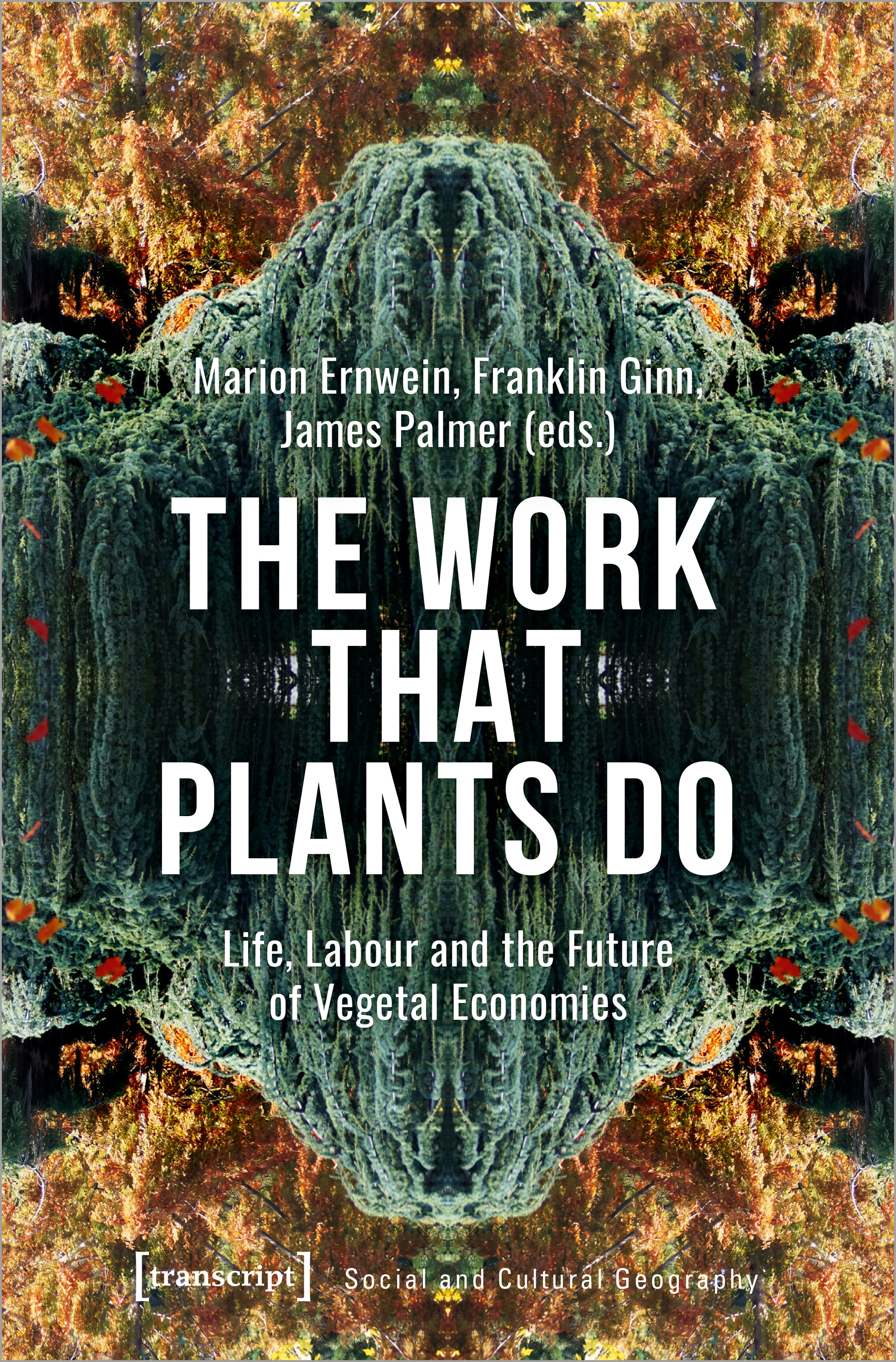James Palmer (School of Geographical Sciences, University of Bristol) introduces a new collection of essays, The Work That Plants Do: Life, Labour and the Future of Vegetal Economies (Transcript, 2021).
Are we living in a vegetal world? Plants are increasingly recognised as sensate, communicative, world-making beings. At the same time, more hope than ever is being pinned on them to address environmental, social and economic challenges – whether through rising interest in nature-based climate solutions, plant-based diets, biotechnological innovations, or beyond. What kinds of connections exist between these philosophical and instrumental views of plant agency? And what relations do they bear to the crisis of capitalism?
In a new collection co-edited by Marion Ernwein (The Open University) and two Bristol geographers – Franklin Ginn and James Palmer – environmental humanities scholars from the UK, US, France and Australia shine a critical light on evolving understandings of the nature and potentials of vegetal life under contemporary capitalism. Drawing on diverse case studies, The Work That Plants Do asks what kinds of work plants do in capitalist economies today. Contributors to the book investigate the fraught processes through which plants are turned into commodities, put to work, or enrolled in projects of social and environmental reproduction. Specific chapters delve into cases ranging from the craft horticultural practices undergirding annual ‘Wisteria Festivals’ in Japan through to laboratory-based succulent conservation in the US, and from the metabolic activities of grape vines in the capitalist viticulture through to the ‘shady work’ performed by urban trees in the increasingly overheated urban environments of north Australia.

If a core ambition of the book is to explore the theoretical and political implications of diverse recognitions of plant agency in contemporary capitalism, an equally central concern is to insist that plants’ alterity – their difference – makes a difference. To attend critically to the capacities of plants is, the book aims to show, not simply a case of extending the existing tools of critical political economy or multispecies studies to a new empirical domain. Rather, the book suggests that plants require new concepts and ways of thinking – about work and labour, about the driving purpose of economies themselves, and indeed about the relationships that should operate between productivity and vitality, growth and life.
Ultimately, the book argues that a closer attention to the heterogenous agencies of plants might serve not only to enrich understandings of capitalism itself, but potentially also to catalyse new forms of resistance to its logics.
The Work That Plants Do: Life, Labour and the Future of Vegetal Economies is published by transcript Verlag and can be purchased directly from the publisher or via their US distributor, Columbia University Press.
Contributors:
- Jennifer Atchison, University of Wollongong
- Jeremy Brice, University of Oxford
- Can Dalyan, College of Charleston
- Emilie Letouzey, Osaka University
- Jared Margulies, University of Alabama
- Daanish Mustafa, King’s College London
- Harold Perkins, Ohio University

